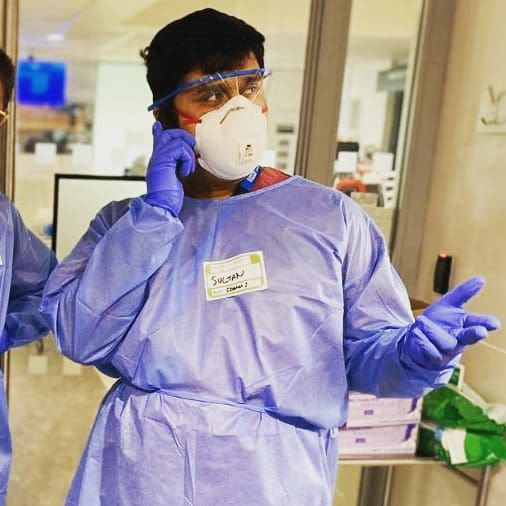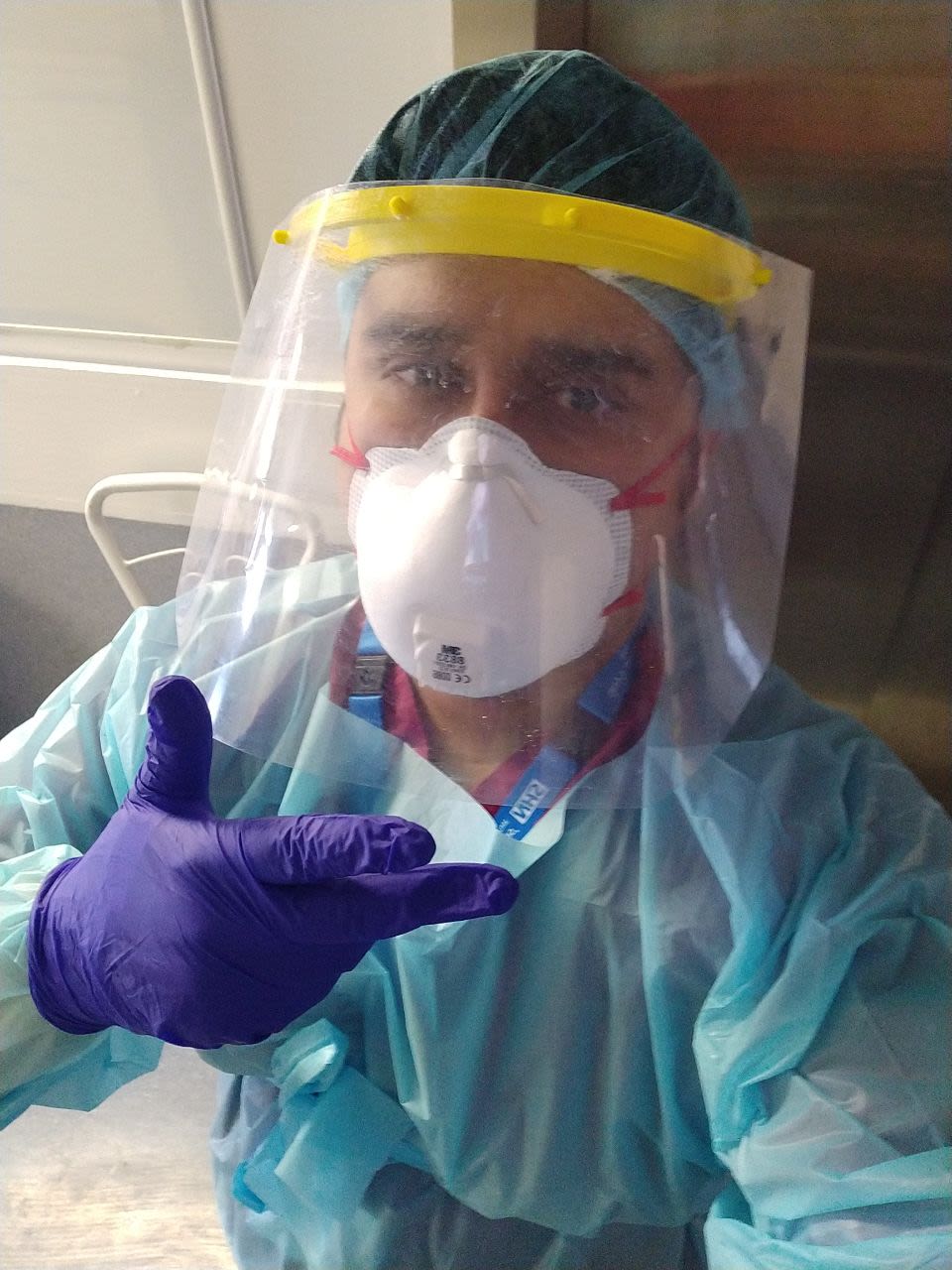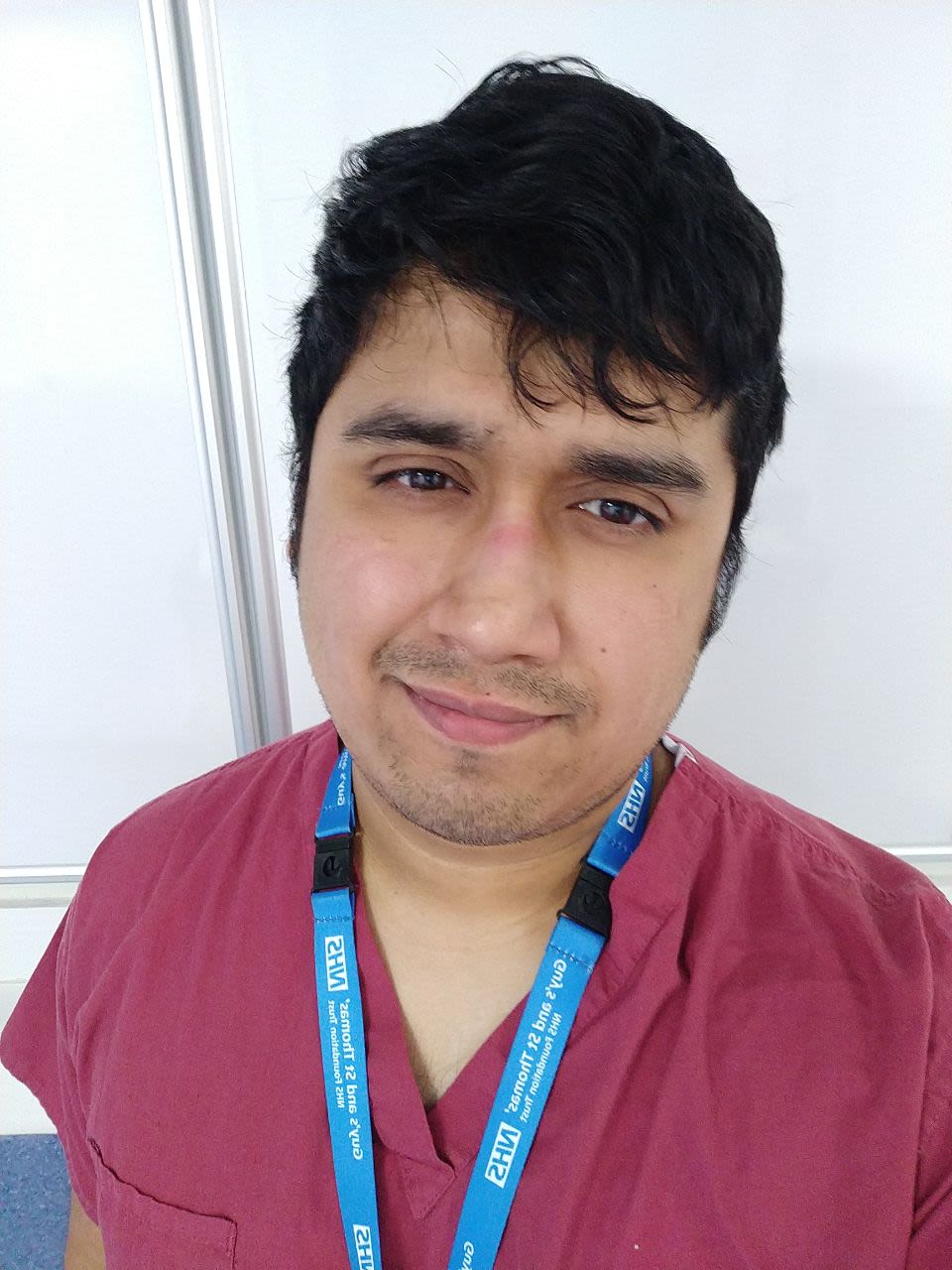Sultan's story

Sultan Hatab
Junior doctor
“Contact with relatives is vital, even with patients in a coma. Without it, caring becomes less human.”
“The Government appealed for 5,500 medical student volunteers to help out in hospitals in March. I had a long think about where I would be most useful. I opted for the Lifelines Project – using tablets to enable patients in hospital to communicate with relatives who weren’t allowed to visit.
It was the best decision I made in the whole of my student career. That was because of the value I brought.
The idea was devised by one of the intensive care consultants and within three weeks we had the tablets and the software and we started doing video calls.
That first call was terrifying. We had contacted the next of kin and explained about patient confidentiality and warned that children might find it upsetting. The patient was in a coma and when the relative pressed the button he was able to see her. The sight of the tubes and wires running in all directions was overwhelming. I have never seen a grown man cry like that.

Calls to patients' relatives were often very emotional
Calls to patients' relatives were often very emotional
The calls were always very emotional. When relatives see a loved one hooked up to wires and tubes it is very upsetting. There were lots of tears, lots of ‘I love you’s, lots of ‘You’ll be ok.’
Our team was 9 strong and we did the calls every day – 2 to 3 hours in the morning and the same in the afternoon. We had to time it to avoid ward rounds.
“As a student your experience in intensive care is highly sheltered. You are not expected to do anything, just observe. This was different.”
Most calls were 5 to 10 minutes. For patients who were going to die up to an hour. At the peak there were 160 patients on ventilators.
As a student, your experience in intensive care units is highly sheltered. You are not expected to do anything, just observe. This was different. If you didn’t make the call for the patient, they wouldn’t have a call that day. They might even die without a call. It was your duty to make it happen.
There were lots of relatives who were not tech savvy, and they were pleading with us to set up calls. If you did a call one day, they would expect another the next day. Sometimes it didn’t come because the patient had died.
A woman was in a coma and the staff were unable to get her to respond. But when she heard the voices of her children she opened her eyes and moved her hand. I asked if she could hear them and she nodded.
Many of the patients were in a coma, so communication tended to be one way. But contact with relatives is vital. Without it, caring becomes less human very rapidly. It increases the stress for nurses and all the staff. I did not anticipate how significant this project would be. It really did enable relatives to process things they otherwise would have been unable to do. I spoke to doctors in other places who said they wished their trust had had something similar.
By May things had quietened down and we were able to help with other work. Whatever they needed us to do we did. The PPE was great. But it was taxing, working in your own sweat.

Sultan wearing full PPE
Sultan wearing full PPE
In June I decided to get a private antibody test. It came back positive. I had been infected – I don’t know how. I was the only one in our group. But I had no symptoms at all.
“I remember a relative begging us to see her daughter…It was the most gruelling call. But whether bad or good, every call was beautiful.”
I was proud of being able to jump in at the deep end and provide a service. I learnt that when the need comes, people are able to work together in a way they never thought possible. It shows how much we are capable of.
I remember a relative begging us to see her daughter. She had lost her partner and feared she was about to lose another member of her family. I have never been begged like that. I teared up. She was helpless. It was the most gruelling call. But whether bad or good, every call was beautiful.
We supported each other on the team and we had a psychologist who helped us. Some staff who watched us making the calls said they didn’t know how we could do it.
I live with my mother and two younger brothers and I was worried for them. I moved out of the family home and only went back in July. It was the most unpredictable time I have ever experienced. I’ve lost count of the friends whose family members died.
I was afraid for myself too. One of the patients I helped was the father of a friend. Unfortunately he died. It became very real for me at that point. I went home, jumped in the shower and just cried. I did not expect so early in my career to go through such an emotional upheaval.

Sultan at the end of a shift
Sultan at the end of a shift
I remember going home on the bus to Bermondsey at the end of a shift and I was talking to a friend on my phone. There were people all around me not wearing masks and I found myself telling my friend in a very loud voice how every day I was watching people die and people just thought it was a joke. I was angry. I think I terrified everyone on the bus that day.”
Read more stories

